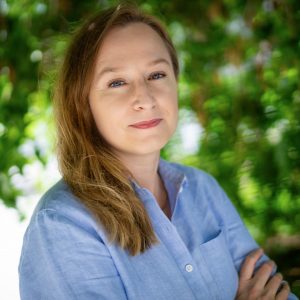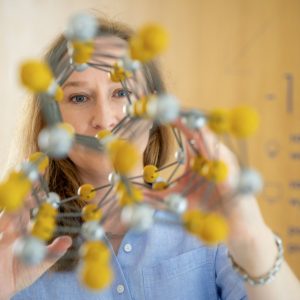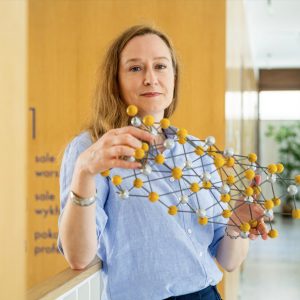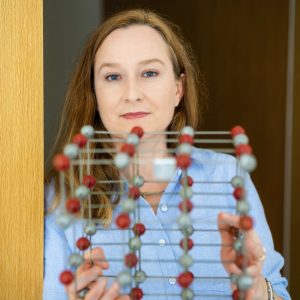Prof. Dominika Zgid will complete her project at the UW’s Faculty of Physics. The researcher intends to develop models of disorder in crystalline materials using systematically improved methods that describe electron correlation.
What is disorder in crystalline materials and what forms does it take? Why is the study of disorder difficult and why do existing computational methods not always cope with its description? What challenges do researchers face when modelling dynamic processes in disordered environments?
These and other questions will be answered by the team of Prof. Dominika Zgid, who has been awarded a prestigious Advanced grant by the European Research Council (ERC) for her project.
The project Modelling disorder in crystalline materials using systematically improvable correlated methods (Correlated_Disorder) will last five years and will be carried out at the UW’s Faculty of Physics.
The project will result in a set of computational tools enabling the modelling of disorder in realistic systems – from weakly to strongly correlated. The tools will allow the use of high-performance computing to reduce the number of costly laboratory experiments and help in the rational design of new, technologically relevant materials.
The project has been awarded almost €3.5 million in funding.
Disordered ordering
Disorder in materials can take a variety of forms – from random arrangement of atoms to structural fluctuations to dynamic configuration changes. These phenomena significantly affect the physical and chemical properties of materials, but their theoretical description is extremely challenging. Commonly used computational methods, such as the currently dominant density functional theory (DFT), cannot cope with fully capturing the effects arising from disorder and strong electron correlations.
Prof. Zgid’s team intends to develop a novel set of computational tools to realistically model systems – from weakly to strongly correlated – taking disorder into account. These methods will be based on finite temperature Green’s functions, offering an alternative to the DFT approach.
“Using the latest breakthrough techniques for many-body systems, quantum chemistry methods, machine learning and advanced mathematical models, we propose to develop a comprehensive toolbox for predicting the spectral and thermodynamic properties of disordered materials,” Prof. Dominika Zgid says.
The project will also integrate the newly developed methods with molecular dynamics and machine learning to enable the study of dynamic processes in disordered environments, such as in high entropy alloys, superconductors or catalytic systems. Furthermore, the team will develop tools for deriving DFT functions from Green’s functions, which will deepen the fundamental understanding of this commonly used method.
Applications and relevance
By using high performance computing (HPC), the new methods will reduce costly laboratory experiments and improve the design of technologically relevant future materials as well as improve our understanding of already existing materials.
Prof. Dominika Zgid’s project is a step towards a new generation of quantum chemistry and condensed matter physics tools, supporting interdisciplinary collaboration and the advancement of materials science.
Prof. Dominika Zgid conducts interdisciplinary research at the intersection of quantum chemistry and computational solid state physics. She studied at the Interdepartmental Studies in Mathematics and Natural Sciences at the University of Warsaw from 1998 to 2002 and defended her MSc thesis in 2002 at the Faculty of Chemistry. In 2008, she received her PhD in chemical physics from the University of Waterloo, Canada.
She then worked in the United States with postdoctoral fellowships at Cornell University (2008–2010, Department of Chemistry) and Columbia University (2011, Department of Physics). In 2018, she completed a one-year research internship at the Flatiron Institute at the Center for Computational Quantum Physics in New York. Since 2012, she has been employed as a professor in the Department of Chemistry and Physics at the University of Michigan in Ann Arbor, where she continues to lead her own research group.
She has received numerous awards for her scientific achievements, including the DOE Early Career Award, the NSF CAREER Award and the International Academy of Quantum Molecular Science Medal.
From September 2025, she will lead a research group at the Faculty of Physics, University of Warsaw, where a project funded by an ERC Advanced grant will be implemented from 2026.







